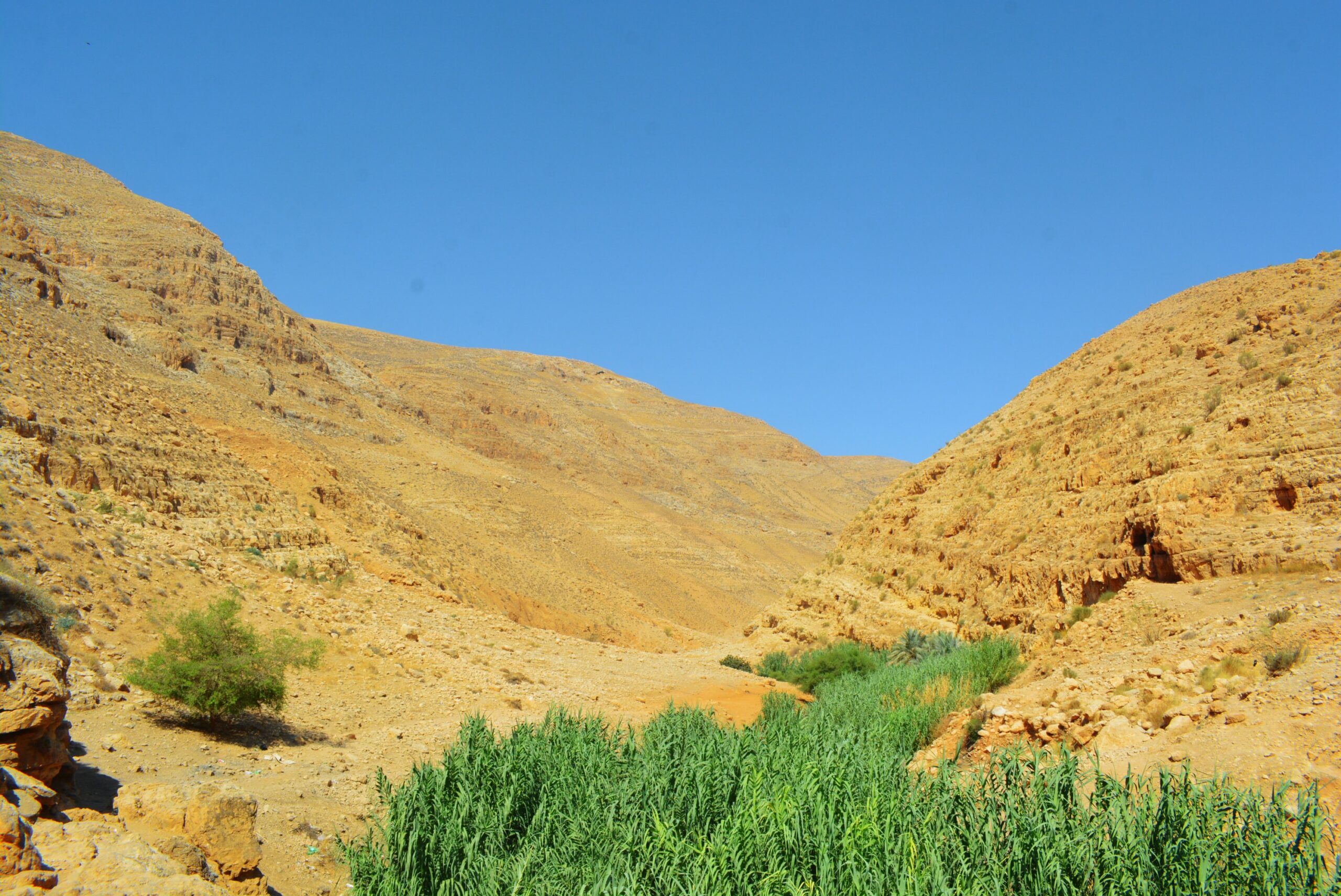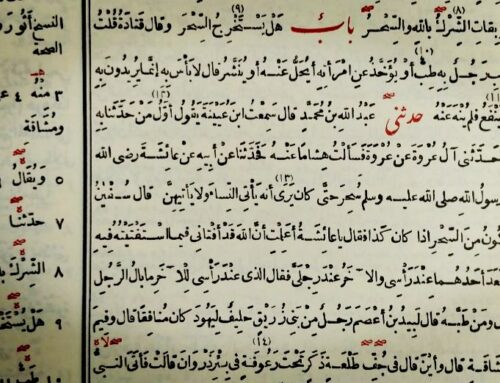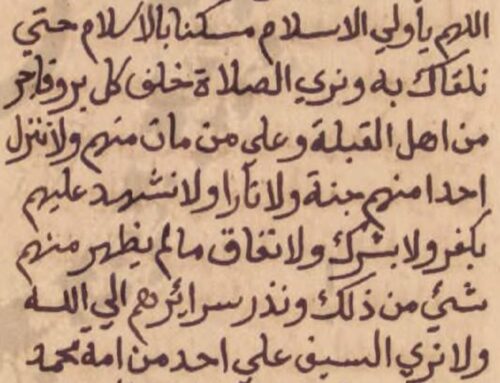By Guest Contributor
Academic Integrity
“Why can’t we just be honest as scholars?”: an ironic but excellent question posed by Nahiem Ajmal (Abu Layth al-Maliki). Regardless of where one aligns themselves in terms of beliefs and viewpoints, everyone appreciates academic integrity. Inadvertently misquoting or misrepresenting others may reflect poor scholarship at the most, but ultimately falls under the scope of human error we are all prone to.
On the other hand, contextomy, the deceptive art of shortening quotations or missing out surrounding words or sentences vital to the context, raises this to a level of academic misconduct, and is tantamount to insulting the intelligence of the audience or readership. The underlying motive is usually a vain attempt to pull wool over people’s eyes and to bolster an otherwise whimsical argument. In simpler terms, it is nothing more than throwing in a few reputable names and, fingers crossed, hoping nobody will bother to check what they actually said.
In the course of contesting the decisively-established miracle of Prophet Isa (alayhis salam) speaking in the cradle, Nahiem Ajmal cited the exegete Mahmud al-Alusi al-Baghdadi (d. 1270 ah) and “all these mufassireen” to support his denial of this miracle. In a subsequent response to claims he had misquoted Alusi, he decided to summarise what Alusi said with particular focus on what Alusi had quoted from Zamakshari (d. 538 ah). Unfortunately for the Birmingham-based graduate of Jamia Binoria, the net result was a glaring example of contextomy at its best.
What Nahiem Ajmal should have ideally realised by now is that not everyone will lap up whatever he presents without verifying. George W. Bush was once advised: “You can fool some of the people all the time, and those are the ones you need to concentrate on”; the same advice, ironically, is being extended here to Nahiem Ajmal.
This article will look at Nahiem Ajmal’s denial of Prophet Isa (alayhis salam) speaking in the cradle, with particular focus on how truthfully or otherwise he has presented Alusi’s and Zamakshari’s views.
It is unrealistic, going by Nahiem Ajmal’s previous responses, to expect anything significant from him or any of his fans in response to this article. Bouts of hysterical laughter, mockery and ridicule, personal attacks, and further episodes of contextomy, may serve as a convenient smokescreen to shift attention from the real issues, but they only seem to work with Nahiem Ajmal’s circle of infatuates, not with people who can see arguments for their actual worth.
May Allah guide us all to the truth, grant us confidence in His words and the words of His Messenger, and protect us from deceit in all its various forms. Amin.
Speaking in the Cradle – A Qur’anic Perspective
Nahiem Ajmal says:
“Somebody has asked a question that did Jesus speak in the cradle and is this not a miracle. First of all, first of all, did Jesus actually speak in the cradle? Says who he spoke in the cradle? Because you’re going by the understanding that he was a little boy and he spoke in the cradle. First of all, it says nothing like that in the Quran. If you’re looking at the surah, it’s mentioning the verse that they are addressing and asking Mary some questions.”
The surah and verse Nahiem Ajmal is referring to is verse 29 of Surah Maryam (19):
“So she pointed to him. They said, ‘How can we speak to one who is in the cradle a child?’” (Qur’an 19:29)
First and foremost, Nahiem Ajmal stating there is nothing in the Quran which says Prophet Isa (alayhis salam) spoke in the cradle as a little baby is a terrible blunder, by any standard. Nahiem Ajmal quoted just this one verse of Surah Maryam, but he failed to acknowledge that there are two other verses stating Prophet Isa (alayhis salam) speaking in the cradle.
Allah says:
And when the angels said, “O Mary, surely Allah gives you glad tidings of a word from Him, whose name will be the Messiah, Jesus son of Mary – honoured in this world and the hereafter, and amongst those brought near. And He will speak to people in the cradle and in maturity, and be amongst the righteous. (Quran, 3:45-46)
It is unequivocal, dare I use the word, that it is the angels, and not the Jews, who are relating this glad tiding to Sayyida Maryam (alayhas salam) and informing her that her child will speak in the cradle. Consider that the angels are informing her of what is to happen in the future; there is no reference to here to what the Jews had said regarding Prophet Isa (alayhis salam).
Allah says:
“And when Allah will say, ‘O Jesus, son of Mary, remember my favour on you and on your mother, when I supported you with the Holy Spirit, you were speaking to the people in the cradle and in maturity.’” (Quran, 5:110)
Here, it is Allah Himself who will remind Prophet Isa (alayhis salam) of this special favour, i.e., speaking in the cradle, on the Day of Judgment. Again, note how Allah is clearly saying Prophet Isa (alayhis salam) was speaking to the people whilst in the cradle; there is no reference here to what the Jews said to Prophet Isa (alayhis salam) or his mother.
Interestingly, out of the three Quranic verses on this issue, Nahiem Ajmal quoted 19:29, but had a very timely memory lapse, causing him to forget the other two verses. Why this was so conducive to Nahiem Ajmal’s interpretation will become clear further in the discussion.
Did Alusi and others say the Jews were referring to Prophet Isa (alayhis salam) being a child in the past?
Nahiem Ajmal goes on to say, after reading 19:29 in Arabic (albeit with an extra letter not in the ayah):
“Two points here. Firstly they say why should we speak to someone who was, was: so people like Alusi and all these mufassireen say they were speaking referring to the past, who was كان في المهد صبيا ”
Even a cursory look at what Alusi says proves Nahiem Ajmal to be seriously mistaken in his representation. Alusi explained from a linguistic perspective, on the authority of Zamakshari and others, why the past participle kāna (was) has been used when referring to Prophet Isa (alayhis salam). But at no point does he entertain the notion, even momentarily, that the Jews were addressing Sayyida Maryam (alayhas salam) when Prophet Isa (alayhis salam) had passed the age of being in the cradle[1]Cradle has been taken in its literal meaning by some commentators and to mean his mother’s lap by others. In any case, the age of infancy is intended., or when he was an adult, as Nahiem Ajmal ludicrously suggests later on.
In fact, Alusi quotes quite categorically that he was still a child in the cradle. He says:
“The ayah raises a question, namely that every person whom people speak to was previously a child in the cradle before the time he spoke, thus it is not a point of amazement and denial.
Zamakshari has answered this in two ways:
Firstly, kana is to place the subject matter of the sentence in an unspecified time in the past, which can be for the near past and distant past. Here it is specifically for the near past. The proof for this is that the sentence was brought to (express) amazement. Thus, the meaning is how can we speak to one who was, yesterday, and also close to it at this time, in the cradle? Their purpose thereby was (to show) he was still in the state of childhood, this state not having left him.”[2]Ruh al-Ma’ani, 16:77
Alusi continues by saying this is more emphatic than saying “he who is in the cradle (man huwa fi ‘l-mahd)”.
So did Alusi actually say the Jews, when addressing Sayyida Maryam (alayhas salam), were referring to Prophet Isa (alayhis salam) being a child in the past, as Nahiem Ajmal would have us believe? A resounding no is the answer.
Alusi also states on the authority of Sayyiduna Ibn ‘Abbas (radhiallahu anhuma), as one of two opinions, that the miracle of speaking in the cradle was only for that short period in which he spoke what Allah has related to us. Thereafter, he did not speak until he reached the age in which children usually speak.[3]Ruh al-Ma’ani, 4:199 He also refutes the Christian claim that Prophet Isa (alayhis salam) did not speak in the cradle, as we will discuss later.
Nahiem Ajmal’s Response
Nahiem Ajmal, in an attempt to exonerate himself from misquoting, “summarised” what Alusi said, in his most recent live Facebook session. Quite typically, the former school teacher underestimated people’s basic comprehension skills and decided to skip a pivotal sentence or two, fancifully hoping nobody will realise the game at play. This is the contextomy or “quote mining” we previously alluded to.
Nahiem Ajmal says:
“Zamakshari answers this can mean the near past so OK, it’s a past tense verse but maybe it means like he was as in not so long ago, like maybe within months, you know, like within the near past tense as opposed to the distant past….But note, note, the first and foremost thing that Alusi does is highlight the problem in saying this verse has presented a problem because كان is past tense, they’re addressing him in the past tense, and what is the whole purpose of that, so ‘cause why is that then such a thing ‘cause we all were children at one point. And then he brings Zamakhshari saying, justifying, saying that it was the past tense but maybe it was the near past tense. Ok, so, have I misquoted? Now, I could understand that he could say, ‘ok, that’s, y’know, I see what Mufti Abu Layth is doing here, he’s taking this but we understand here that although Alusi does bring that first, as his first response to his problem, but we think maybe he took a more inclination to the second interpretation of saying this was extra, but to say I’ve lied, he goes, ‘he lied’ look at that! He openly says I lied, I haven’t. I just read to you what he actually said.”
Nahiem’s headstrong response would have been of some merit had he not misquoted Zamakshari and omitted his very critical statement, which states the usage of the past tense, from an Arabic rhetoric (balāgha) perspective, to show Prophet Isa (alayhis salam) is still a child in the cradle. But the poor soul had no choice but to skip that part and misquote Zamakshari and Alusi, as citing it would have struck his eisegesis sandcastle like a Tsunami.
To allow himself some space to wriggle out of his predicament, Nahiem Ajmal desperately insists his critics should concede that Alusi did take Zamakshari’s explanation as his primary view.
The truth, however, is that regardless of what Alusi took “a more inclination to” – of which there is no real indication, except that he considered Zajjaj’s interpretation far-fetched – Zamakshari did not say it was possibly a reference to the near past: he clearly said it is specifically for the near past but to show continuance (istimrār) of childhood. The second answer given by Zamakshari, which Nahiem Ajmal did not mention, also reiterates the same point: Prophet Isa (alayhis salam) was still an infant in the cradle when he spoke.
And after all this, Nahiem Ajmal still expects people to see his blatant misrepresentation and contextomy as an alternative take or reading of Alusi’s text? A delusional expectation indeed. As someone once said, “Half a truth is often a great lie”.
In conclusion, there is no denying that the past participle kāna was used, but never did Alusi or Zamakshari say it was referring to Prophet Isa (alayhis salam) after he had grown out of childhood and beyond the age of the cradle, the view which Nahiem Ajmal is so desperately trying to prop up and present as the Qur’anic view.
Also, the fact that Alusi acknowledged the objection and answered it does not mean he accepted its premise. He clarified, in very clear terms, that usage of the past participle does not mean Prophet Isa (alayhis salam) was no longer a child.
Furthermore, it is evident how 3:46 and 5:110 would have allowed no room for Nahiem Ajmal to get even this far into his argument, which is why they were brushed under the carpet and viewers were told there is nothing like Prophet Isa (alayhis salam) speaking in the cradle mentioned in the Qur’an, after which he embarked on his misquote mayhem.
Nahiem Ajmal suggested “all these mufassireen” also said the same as what Alusi supposedly said. However, not surprisingly, acclaimed masters in Qur’anic tafsir (exegesis) echo the same opinions as Alusi, and none of them said kāna is being used to denote that Prophet Isa (alayhis salam) was no longer a baby when his mother was being addressed.
Abu Ja’far al-Tabari (d. 310 ah) says:
“He, Most High is His mention, says that her people said to her: how can we speak to one who is present (wujida) in the cradle? Kāna in his saying من كان في المهد صبيا is complete, not the one which requires a predicate. This is similar in meaning to the kāna which is in His saying: هل كنت إلا بشرا رسولا. Its meaning is: I am not except a human messenger.”[4]Jami’ al-Bayan, 5:154
Al-Qurtubi (d. 671 ah) says:
“The past tense is not intended here through kāna, because every person had been a child in the cradle; it is in the meaning of ‘he’ (who is).”[5]This answers Nahiem Ajmal’s view: “They’re kind of looking down on Jesus, saying you know we don’t wanna talk to him, he was just a little boy yesterday.” [6]Al-Jami’ li Ahkam al-Qur’an, 13:445
Al-Razi (d. 606 ah) says:
“Kāna here means to occur and be present. This is the most likely interpretation of this word, although people have mentioned other possibilities.”[7]Mafatih al-Ghayb, 21:201
Al-Samarqandi (d. 375), Baghawi (d. 516), Ibn ‘Atiyya (d. 546), Abu Hayyan (d. 745), Ibn ‘Adil (d. 880), and Ibn ‘Ashur (d. 1393) are just a few amongst the commentators who have contextualised the usage of kāna, in different ways, to establish that Prophet Isa (alayhis salam) was a baby when he spoke. Who exactly are “all these mufassireen” who said the Jews were referring to Prophet Isa (alayhis salam) as being a child in the past? We’ll let Nahiem Ajmal answer.
Sabiyy and Tifl
Continuing any further into this analysis of Nahiem Ajmal’s “Tafsir” may seem like flogging a dead horse by now, but there is still more to highlight.
Nahiem Ajmal says:
“Even if you go by the understanding that he is young there… Sabiyy is not a tifl. A tifl is a toddler. A sabiyy is a young boy. Could be anything from let’s say four to about nine, ten, that kind of age if you are going with that.”
Coincidentally, Alusi points out why the word mahd (cradle) has been used, as opposed to the word tifl, in his explanation of 5:110:
“In other words, as a young child. And what the noble wording (of the Quran) comprises is more eloquent and better than saying childhood (tufuliyya), because a child is called a tifl from birth until puberty. For this reason, he moved away from (using) that.”[8]Ruh al-Ma’ani, 6:477
Al-Raghib al-Isfahani (d. 399 ah) says sabiyy is one who has not reached the age of puberty.[9]Mufradat Alfaz al-Qur’an, 475. With this definition, the word mahd sets the context to childhood. However, Ibn al-Manzur (d. 711) more specifically says in Lisan al-‘Arab that sabiyy is from the time of birth until the child is weaned.[10]Lisan al-‘ Arab, 20:181 Al-Fayruzabadi (d. 817 ah) says sabiyy is one who has not yet been weaned.[11]Al-Qamus al-Muhit, 1302 Murtadha al-Zabidi (d. 1205 ah) cites both definitions in his Taj al-‘Arus.[12]Taj al-‘Arus, 38:406
The pressing question for Nahiem Ajmal is where did he get his definition of sabiyy and tifl from? Perhaps the voice of reason will shed some light.
And he has enjoined upon me salah and zakah…
To explain the rationale behind the idea that Prophet Isa (alayhis salam) was an adult when he spoke what Allah has related in the Qur’an, Nahiem Ajmal says:
“If he was a little baby, I can understand salah, but why zakah? A little baby wouldn’t be dealing in money…this doesn’t make sense.”
Nahiem Ajmal’s voice of reason has turned into a horrible shriek at this point: Why is a little baby being ordered to perform salah understandable but not zakah? Has Ajmal witnessed little babies performing salah before? More importantly, why did he not read ahead and complete the verse: “as long as I am alive”, which clearly contextualises the obligation of salah and zakah to when he reaches the age of accountability?
‘Abd al-Rahman ibn al-Qasim (rahmatullahi alayh) narrates from Imam Malik ibn Anas (rahmatullahi alayh) under this verse: “He informed him of what is to be of his affair until He dies.”[13]Tafsir Ibn Kathir, 1186 Qurtubi narrates similar wording from him: “How severe this verse is against the Qadariyya (those who deny predestination). Isa (alayhis salam) informed of what had been decreed of his affair, and of what is going to happen until he dies.”[14]Al-Jami’ li Ahkam al-Qur’an, 13:447 Does this statement of Imam Malik (rahmatullahi alayhi) hold any weight if Prophet Isa (alayhis salam) said this at the age of thirty, and as Nahiem Ajmal and others assert, died a few years later?
Let the Gospels Speak
Nahiem Ajmal goes on to make a number of disastrous points:
“What is interesting is if you compare this to the Gospels that speak of this incident, the Gospels don’t speak of a child being addressed but they speak of the incident of Mary having to undergo questioning, and it’s interesting ’cause in that occasion she has to bring forward witnesses but she can’t and the only person she refers to is Jesus.
So it’s interesting if you do a muqarana, a comparison between the story which is very briefly mentioned in the Quran but the Gospels, you can find similitudes of when Mary is being examined by these people, by the Jewish kind of hierarchy, and obviously Jesus intervening, at that stage, this is when Jesus came to Jerusalem at thirty years of age. Obviously, to them he is still a kid, but she comes carrying him and what’s interesting is that here the Quran says she brings تحمله carrying him. And people say carrying him means carrying him, but in the Bible it also says she brought him into Jerusalem carrying but in the Bible it says carrying him on a donkey.
Now in the other verse of the Quran, Allah uses the same word that they came to you, to the Prophet, لتحملهم, so that you can carry them using the same verb. Literally, the Prophet isn’t going to carry these men. It means to carry them on horses or camels or donkeys. So the same verb is being used. I’m just saying if you look at the Gospels: they are the people who at the end of the day are more occupied about Jesus. So what do they say? This is what they say, that Mary came leading Jesus into Jerusalem carrying him on a donkey.”
The first and foremost question here is where exactly in the Gospels is this incident related? And we don’t mean something that sounds remotely similar, but rather with the particulars mentioned by Nahiem Ajmal: Prophet Isa (alayhis salam) was thirty years old, was led into Jerusalem on a donkey by his mother and was put forward to advocate for her in the absence of any other witness.
If Nahiem Ajmal is, against our realistic expectations, able to provide us with a credible reference, the big question then is how does this fit in with what he alleged to be Zamakshari’s viewpoint, i.e., reference being made to the near past? Is thirty years “not so long ago, like maybe within months”? Why go to the trouble of misquoting Alusi and Zamakshari in the first place if their alleged view does not even conform to his “take” on the whole issue? Nahiem Ajmal clearly believes Prophet Isa (alayhis salam) was an adult when the Jews questioned his mother and he responded; that is incompatible with what Zamakshari was supposed to have said.
To jog his memory: “Zamakshari answers this can mean the near past so OK, it’s a past tense verse but maybe it means like he was as in not so long ago, like maybe within months, you know, like within the near past tense as opposed to the distant past.”
Also, while we’re here, according to Nahiem Ajmal, Sayyida Maryam (alayhas salam) was told: “Then, if you see any human being, say (to him), ‘I have vowed a fast (of silence) for the All-Merciful (Allah); and therefore, I shall never speak to any human today.’” (Qur’an, 19:26), and thirty years later: “Then, she came to her people carrying him.” Perhaps Nahiem Ajmal can unearth something from Alusi or Zamakshari to explain the three decades delay. And please don’t repeat the mistake of suggesting he went and joined some Buddhist monks!
The most disturbing point in all of Nahiem Ajmal’s discourse is that the pristine, consentient understanding of the Quran in this regard is so easily subjected to such wild and cheap contortions. No academic rigor, a proven lack of conscientiousness when quoting, and squeezing the clear Qur’anic narrative into a supposed Christian outfit, because “they are the people who at the end of the day are more occupied about Jesus”, all contribute towards this newfangled idea of Nahiem Ajmal.
It will not be misplaced here to quote what Alusi said in response to the Christian denial of this miracle, as it puts to rest the idea of superimposing a Christian perspective on the Qur’an and its meanings, what Nahiem Ajmal is openly entertaining as a route to understanding the Book of Allah.
Alusi says:
The Christians claimed that he (peace be upon him) did not speak in the cradle nor did he utter his mother’s innocence as a young child, but instead he stayed for thirty years and all the while the Jews were accusing his mother (of unlawful relations) with Joseph the Carpenter. This is one of their most shameful statements which openly refute what they uphold with regard to their claiming divinity for him.” [15]Ruh al-Ma’ani, 4:199
He further says:
“They objected that speaking in the cradle is an amazing matter: if it had occurred, it would have been reported, and had it been reported, the Christians would have been the most likely people to know of it [similar in vein to what Nahiem Ajmal proposed!]. The answer given to this is that those present did not reach the level of mass transmission (tawatur), thus when they related it, they were belied and so they remained silent. This matter remained concealed until the Qur’an expressed it. This is possible according to the opinion of Ibn ‘Abbas that he did not speak except for a moment during the day. According to the other opinion that he continued to talk, it will be said that people became preoccupied thereafter with his other conditions which were even more amazing, such as reviving the dead, curing the born-blind and leprous, informing of the unseen and creating bird-like forms from clay, to the extent that only a few amongst them mentioned speaking (in the cradle). This matter remained with a small number until nobody to inform of this remained, and it remained concealed until the Qur’an made it apparent.
Even after all this, you are entitled to say we do not accept the consensus of the Christians that he did not speak in the cradle. The apparent meaning of the narrations, some of which have passed, indicate that some of them did believe it. If for argument’s sake they do have a consensus, the most that is necessitated is its being considered unlikely. But after being informed by the truthful, it (i.e., the consensus) is of no avail for one whose faith is grounded and whose conviction is strong. How many things have the People of the Book concurred upon which the true Qu’ran has spoken against! The truth is more worthy of being followed. Perhaps their objective thereby is to ‘extinguish the light of Allah with their mouths, but Allah refuses except to complete his light, even though the disbelievers abhor it.’” [16]Ruh al-Ma’ani, 4:199-200
Why the Jews did not stone Sayyida Maryam (alayhas salam)
Nahiem Ajmal fumbles a last attempt in his unavailing endeavour by saying that Sayyida Maryam (alayhas salam) was not accused of adultery, because the Quran is not clear on this; at most it can be alluded too.
He then says:
“If it was fornication, then why didn’t they stone her? This is the question. The Jews would have stoned her. They had no compassion for Mary. To think they had an opportunity to stone her and they didn’t do it. It doesn’t add up. And we know they didn’t stone her.”
To expect the Qur’an to always spell things out in blunt terms stems from a disregard or ignorance of Arabic rhetoric (balagha), and of the Qur’an’s style in general.
What exactly did her people say to her?
Allah says:
“They said, ‘O Maryam, you have committed something grave indeed. O sister of Hārūn, neither your father was a man of evil nor was your mother unchaste.’” (Qur’an, 19:27-28)
Ibn ‘Ashur says:
They intended by saying this to imply she had done something out of character with her family. In other words, [according to them] she had done an evil out of character with her father and an indecency out of character with her mother. She has opposed the character of her parents, thus she was an evil woman and an unchaste woman. Her father was not a man of evil nor was her mother an unchaste woman, thus she was the first to commit indecency in her family. They intended to disparage her. They said what was clearly in praise of her parent, requiring that her state be like that of her parents.[17]Al-Tahrir wa’l-Tanwir, 16:96
Alusi says:
“It contains proof that the descendants are generally pure if the ascendants are pure, and they are censured if they do something to the contrary.” [18]Ruh al-Ma’ani, 16:77
Again, other commentators of the Qur’an have given similar answers in their works.
As for Nahiem Ajmal saying the Jews would not have wasted an opportunity to stone Sayyida Maryam (alayhas salam) because of their lack of compassion for her, the very simple, effortless answer to that is that Prophet Isa (alayhis salam) miraculously spoke in defence of his mother, after which they had no valid reason to doubt her.
Alusi said:
“She was ordered to do this (i.e., remain silent), according to what a number of scholars said, due to it being disliked to dispute with foolish people, and due to sufficing upon Isa (alayhis salam) speaking, because it was a decisive statement to end the slander.”[19]Ruh al-Ma’ani, 16:74
According to Nahiem Ajmal’s understanding, Sayyida Maryam (alayhas salam) is being questioned in Jerusalem, her thirty-year old son is sat on a donkey she led him into the city on, she is not speaking but pointing to Prophet Isa (alayhis salam), and the Jews say we don’t want to talk to him because he was just a kid yesterday, meaning thirty years ago, which Zamakshari said is the near past! Makes a lot of sense!
Conclusion
Nahiem Ajmal’s being economical with the truth has been demonstrated quite evidently: focusing just on 19:29 and excluding two clear verses from the discussion, misquoting Alusi, subsequently half-quoting Zamakshari, falsely attributing his distortion to other exegetes, coining his own unprecedented definition of sabiyy, alleging an incident to be in the Gospels, and as an added bonus, some insubstantial objections that droop as soon as the wider context is brought in.
It beggars belief that a person would go to such lengths to manufacture a view in the manner Nahiem Ajmal did, but in a materialistic, egocentric era where the whole concept of faith in eschatological realities, miracles and matters of the unseen is perceived as a blight to the “voice of reason”, it is no surprise to see such voices received with enthusiasm. But ultimately, Allah will protect His religion.
The Prophet (sallallahu alayhi wasallam) said, “This sacred knowledge will be borne by the reliable authorities of each successive generation, who will remove from it the alterations of those guilty of exaggeration, the plagiarism of the corrupt, and the false interpretations of the ignorant.” [20]Al-Baghdadi, Sharaf Ashab al-Hadith
Be it as it may, after realising the sheer incompetence of an individual to speak honestly in God’s name – anyone’s name in fact – it is nothing short of spiritual suicide to then trust such people with one’s religion. May Allah safeguard our faith.
References
| 1 | Cradle has been taken in its literal meaning by some commentators and to mean his mother’s lap by others. In any case, the age of infancy is intended. |
|---|---|
| 2 | Ruh al-Ma’ani, 16:77 |
| 3 | Ruh al-Ma’ani, 4:199 |
| 4 | Jami’ al-Bayan, 5:154 |
| 5 | This answers Nahiem Ajmal’s view: “They’re kind of looking down on Jesus, saying you know we don’t wanna talk to him, he was just a little boy yesterday.” |
| 6 | Al-Jami’ li Ahkam al-Qur’an, 13:445 |
| 7 | Mafatih al-Ghayb, 21:201 |
| 8 | Ruh al-Ma’ani, 6:477 |
| 9 | Mufradat Alfaz al-Qur’an, 475. With this definition, the word mahd sets the context to childhood. |
| 10 | Lisan al-‘ Arab, 20:181 |
| 11 | Al-Qamus al-Muhit, 1302 |
| 12 | Taj al-‘Arus, 38:406 |
| 13 | Tafsir Ibn Kathir, 1186 |
| 14 | Al-Jami’ li Ahkam al-Qur’an, 13:447 |
| 15 | Ruh al-Ma’ani, 4:199 |
| 16 | Ruh al-Ma’ani, 4:199-200 |
| 17 | Al-Tahrir wa’l-Tanwir, 16:96 |
| 18 | Ruh al-Ma’ani, 16:77 |
| 19 | Ruh al-Ma’ani, 16:74 |
| 20 | Al-Baghdadi, Sharaf Ashab al-Hadith |








Nahiem Ajmal is a proven liar. See also: http://ahlussunnah.boards.net/thread/769/another-lie-nahiem-ajmal-layth
The worst thing is that there are people who know he speaks utter nonsense but they still defend him. Really weird. Why defend someone who is a proven liar beyond doubt?
O you who believe, fear Allah and be with the truthful.
https://en.m.wikipedia.org/wiki/Triumphal_entry_into_Jerusalem
Doesn’t sound anything like Abu Layth version. This guy has no limits. He’s lying about the Bible now too.
I liked the article as a whole but I did not like the personal attack on the personality of Brother Abu Layth.
I don’t think it’s a personal attack. If Abu Layth has lied and misquoted like the article shows, that has to be exposed. That’s the only way people will realise not to believe in what he says.
There are sooooo many things online that can be said about him. Just type in Nahiem Ajmal on Google. If the article mentioned them it would have been a personal attack for sure.
Mufti Abu Layth has responded to this article. The author should listen to the response and be a bit more fair next time before lashing out at the respected Mufti. All scholars have a right to their opinion and that should be respected!
@ben akked,nahiem really has a cogent response?nahiem is as far from academics as I am from earth’s atmosphere!if you aren’t nahiem posing as someone else (which he does) and are a student of knowledge,then,by now,you should be aware that he’s a pathological liar.Why don’t you ask him how he left binoria whatsapp?i would like to hear his nonsensical shrieking banshee type laughter playing it off as people getting “personal”.nahiem,If you’re reading this,remember,I did warn you about your shoddy academics and so did the ulama on the group.But rather than provide references for anything,you ran away with your tail behind your legs.Guess who wins?me!I am happy that the ulama are getting to see what I have seen for the past 17 years.You are a bonofide كذوب.I thank Allah daily that ulama haqq continue to rebut your dumbness.It is time for you to have some hayaa and quit before you make yourself look like a true Dajjal (oops you don’t believe in him,Trump then)if you haven’t already done that…..you subject yourself to ridicule every week and then say ulama are obsessed with you?!really?why would you say ulama are obsessed?is it obsession or is it to expose how much of a soplagaitas are?
This is what happens when you don’t listen to a friend who has been telling you to provide references for your claims.Eventually you become exposed like the liar you really are.
Let’s set the record straight here on Nahiem Ajmal’s response to the article.
1. This what was said in the original article:
“It is unrealistic, going by Nahiem Ajmal’s previous responses, to expect anything significant from him or any of his fans in response to this article. Bouts of hysterical laughter, mockery and ridicule, personal attacks, and further episodes of contextomy, may serve as a convenient smokescreen to shift attention from the real issues, but they only seem to work with Nahiem Ajmal’s circle of infatuates, not with people who can see arguments for their actual worth.”
Surprise, surprise! Nahiem Ajmal’s reply was just as expected.
2. Nahiem Ajmal said the article kept saying Mufti Abu Layth or Abu Layth.
Correction: He was not once referred to as a mufti, as you can read for yourself. As for “Abu Layth”, it was put in brackets next to his real name just the once. Apart from that one instance, he was referred to as “Nahiem Ajmal” nearly fifty times.
Having been a school teacher at Park View, Birmingham, I’m sure he has basic reading skills. Why then does he have a problem acknowledging and spitting out the name chosen for him at birth, most presumably by his parents (may Allah bless them)? He was clearly hesitant to say his own name. But we’re not going to do any tahreef in his name: Nahiem Ajmal he is!
2. Nahiem Bhai repeats all the same points again, without actually being able to refute the claim that he misquoted Alusi. His last resort is to say: “I don’t care.” Expected.
3. He now turns on Alusi and says “keep him”…”I’m going by what Allah actually says”.
Nahiem Ajmal is an expert at turning against people who disagree with him, after initially citing them and referring to a them as “the don”, “the legend” etc. Scholars of the past are no exception to this paradoxical attitude of his. So it was more than expected that once Alusi’s actual text didn’t match Nahiem Ajmal’s “take” on it, the Hanafi legend is demoted to just a Hanafi scholar of later centuries.
4. Initially misquoting Alusi and “all these mufassireen” to support his view, getting caught fiddling on his phone (this is with reference to his missing crucial sections of Zamakshari’s text whilst reading from Alusi’s Ruh al-Ma’ani on his phone), and then saying keep your interpretation; I’m going by what Allah actually says, is all part of the same game. He had absolutely nothing to say about the other two verses on this topic, as if they don’t even exist. Expected.
4. He misleads by saying it was just the issue of Alusi which was being latched on to, whereas the article covered more than just Alusi. Expected.
5. He did not provide any reference to his definition of sabiyy. Expected.
6. He did not provide a reference to the incident he quoted from the Gospels. Expected.
7. He displayed his characteristic appetite for the limelight, even if it comes at the price of being exposed as a liar or called a deviant. Nahiem Ajmal’s case brings to mind the Bedouin who once urinated in the Zamzam well, a ridiculous attempt to become “renowned” as “the man who urinated in Zamzam”.
8. He did not answer why he believed a baby being told to perform salah was plausible.
Finally, it may dampen Nahiem Ajmal’s fetish for fame to know this, but people who refute him aren’t obsessed with him. They do a lot more than sit on Facebook once a week and mislead people. Part of their duty towards the community is to warn of charlatans, and with that spirit, they very easily denude the academic cover people like Nahiem Ajmal lurk under. Let’s just say they want people to see a spade for what it is and not fall for lies in the name of God.
The purpose here is not to entertain anyone, but if being exposed as a liar is one of Nahiem Ajmal’s relishes, it’s a pleasure to be of service.
And a very humble request to Nahiem Bhai. Please don’t pronounce قرآن as قرعان.
May Allah guide one and all. Amin.
Excellent article
May Allah bless you for exposing the lies
People are blindly following their desires, and are not searching for the truth, which is why many are falling under the trap of abu layth
May Allah guide us all, we say we hear and obey to Allah and the messenger, not we pick and choose